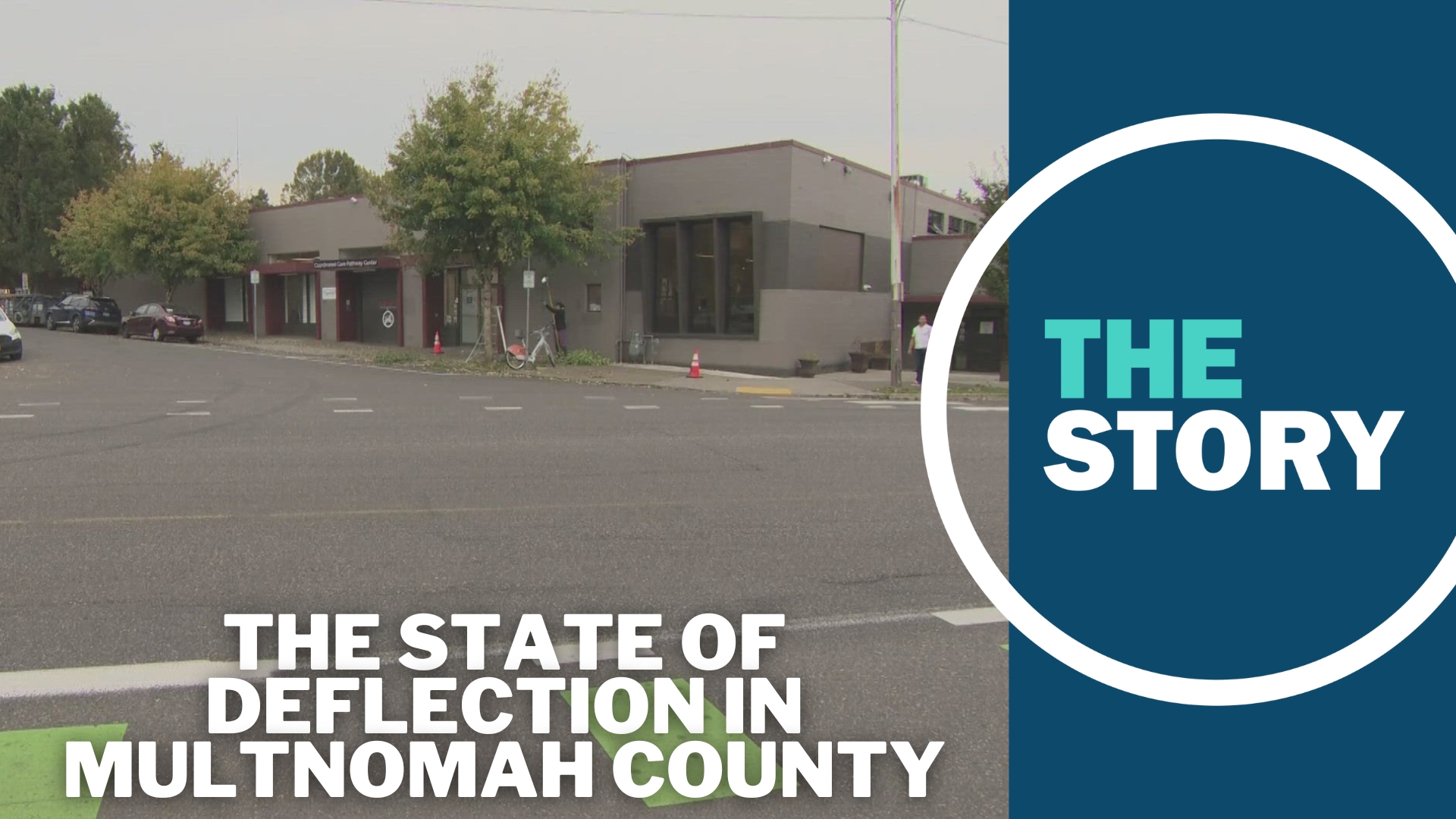MULTNOMAH COUNTY, Ore. — Multnomah County says about 127 people chose deflection services over an arrest for drug possession in the first 10 weeks of the county's program, between Sept. 1 and Nov. 15. The new system is designed to offer people a choice of treatment and services instead of jail when they're caught with drugs.
How many of those people "successfully" followed up on deflection referrals — including sobering, detox, outpatient services, and housing assistance — is still under review and the county says it won't release data on deflection program outcomes until its quarterly report in mid-February.
Drug deflection programs are part of Oregon's recriminalization of drug possession after the rollback of Ballot Measure 110. Counties across Oregon started their deflection programs when that became effective in September.
At last count, Multnomah County reported the highest share of deflection cases in the state. It opened its "Coordinated Care Pathway Center" to receive people from law enforcement for deflection services on October 15. The center had been delayed following renovation and staffing delays, amid pushback from neighboring community members.
The county's latest update, shared Tuesday, showed that 74 people were referred to the Pathway Center in its first month of operation, with most starting deflection.
In all, the county has provided 268 referrals to different types of services since the deflection program began. An individual can receive multiple referrals and only needs to follow through with one of the referrals to be considered a deflection "success," county leaders previously explained.
County and deflection program leaders said it is too early to provide any data on deflection outcomes, which types of referrals are being given most often, and which are being used.
"To our knowledge, these referrals are going smoothly and those who have followed up on their referrals have been able to access services," said Bernard Gyebi-Foster, CEO of Tuerk House, which is managing the Pathway Center. "It is going to take time to have a true sense of participants' outcome, but at this early stage, we are confident in the services we are providing at the center and encouraged by participants willingness to accept referrals to recovery."
Deflection participants don't have to accept services on the spot after arriving at the Pathway Center, they have 30 days to follow up and, for example, check into a sobering center.
Gyebi-Foster said that he believes most of the referrals from the Pathway Center are directing people to three organizations that provide detox, outpatient addiction treatment and peer services.
"Currently we are seeing about three treatment programs that we are doing a lot of the referrals to: Fora Health will be one of them, and I believe (Recovery Works Northwest) and (4D Recovery) as well," he said.
Portland Police said in mid-November that most of its 225 drug possession-related interactions since September led to arrests, rather than deflection referrals.
Multnomah County Behavioral Health Director Heather Mirasol explained that while some people may choose arrest over deflection, there are some key limitations that might make an arrest the only option for police.
"It's important to consider that the bar for deflection eligibility remains high," Mirasol said. "Outstanding warrants are a big barrier, and oftentimes people are stopped for additional violations such as trespassing, which makes them ineligible for deflection."
At least 28 people in the first 10 weeks of Multnomah County's drug deflection program started the deflection process and then opted out after they were referred by law enforcement. An example could include arriving at the Pathway Center and refusing to sign release forms, a county spokesperson explained, leading to someone walking out without receiving referrals for services.
These "opt-outs" are not re-arrested on the spot, but they're also ineligible for deflection for the next 30 days if found by police to be in possession of drugs again.
"As expected, some people who are eligible for deflection ultimately opt out," Mirasol said. "Some start deflection but are not yet at a place of readiness to engage in services, we also anticipate that some people will be referred to deflection more than once before they are successful."
The opt-out figure doesn't include anyone who received service referrals at the Pathway Center and then didn't follow up on any referrals within the next month. Those cases would represent "failed deflections," per the county, and data on such cases is being withheld until February.
In the first month of the Pathway Center's operations in Southeast Portland, county leaders said they've monitored security around the building and seen no cause for concern.
"We have not seen an increase in camping, loitering or other activities related to Pathway Center," said Dorothy Elmore, director of workplace security at Multnomah County.

